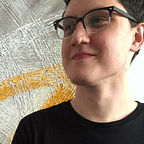The Most Terrifying But Exciting Question: Who Am I?
The question that spirituality asks is a deep and strange one: “Who am I?” Most of the time we don’t even consider this question worthy of asking because it’s so obvious to us: I’m me. We are satisfied, generally, with worldly answers, which demonstrate certain roles: I’m a woman, man, student, lawyer, friend, poet, etc.
But, occasionally, we get a glimpse into the importance of this question and our uncertainty as to its real answer: who am I really? We notice ourselves doing something we never expected. We crack open an old diary and hardly recognize the writer. We catch ourselves acting exactly like our parents, and wonder if any of our impulses are really our own. In other words, sometimes the shell of certainty is broken, and we see that our “self” is not simply our own: we are connected inextricably to the world, and it’s sometimes difficult to tell where we end and it begins.
We crave stories that give meaning to this question; in a movie, for example, we want to watch a main character change. Living vicariously through our hero, we feel the question of personal identity come to life. We relate to the protagonist, who thought that she was one thing, but realizes gradually (or suddenly): maybe she’s something else altogether. Hopefully, of course, we are “growing,” or changing in a positive direction; but either way, stories where the characters shift dramatically and convincingly are often the most fulfilling.
But the spiritual impulse doesn’t stop there: it continues to ask the tough, existential questions. The spiritual person isn’t satisfied with obvious answers, because the urge toward existential truth isn’t so easily subdued, even when we think we’ve found our “True” self. Occasionally, we’re still struck in the middle of the night by the unnerving possibility: if our personality changed, what’s to stop it from changing again? Just as we are not the same as yesterday, our self of today may not be the same tomorrow. We are prompted to ask if anything — any discernible soul or self — stays the same. Is there something at the core of who we are which is not dependent upon circumstances, but is in some sense always our own? Is there anything about us that is independent? In other words, “Who am I?”
This kind of deep, personal uncertainty is scary, on the one hand. We may feel as if we’re spinning off into the void with nothing to hold onto — as if, at some deep level we’ve never felt before, we don’t know who we are at all.
On the other hand, in this state of uncertainty, we gain something irreplaceable — something we didn’t even know we were missing, but once we feel it, has the power to totally reshape our world. We gain a sense of mystery. The world of the unknown is exciting: we never know what’s around the corner. We never know how we ourselves might change, on a microscopic or macroscopic level. We never really know, and the beauty of this is not that it stops us from being ourselves; rather, it gives us the freedom to discover ourselves right now, in this very moment.
The paradox of “Who am I?” is: we never know, but, we constantly find out.
